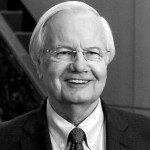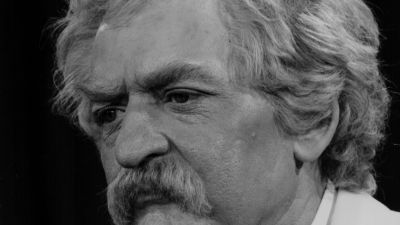
(Photo credit: Don Perdue)
A Facebook member responded to our recent post Bill Moyers and Steve Harper on Lawyers, Liars and Trump on Trial with a question:
Bill Moyers responds:
I don’t know what in particular Joseph Campbell would say about our situation today. But I can imagine him lamenting, as he did when we talked some 30 years ago, our failure “to admit within ourselves the carnivorous, lecherous fever that is endemic to human nature.” Malevolent greed was on the loose then – it was the mid-1980s as Wall Street’s Gordon Gekko popularized the mantra that “Greed is good” — and the disease was infectious. So I am sure he would not be inclined to place all the blame for the vulgarity and decadence of today on a single individual, no matter how venal, but would say that one conspicuous culprit is the symptom, not the cause, of our discontent.
He would likely be sad now, as he was then, over the weaponizing of religion. He told me, “My notion of the real horror today is what you see in Beirut [then a battleground of religious conflict]. There you have the three great Western religions, Judaism, Christianity and Islam, and because the three of them have different names for the same biblical god, they can’t get on together. They are stuck with their metaphor and don’t realize its reference. They haven’t allowed the closed circle that surrounds them to open. Instead, each insists, ‘We are the chosen group; we have the Truth.’“
Joe believed that we need “myths that will identify the individual not with the local group but with the planet.” Remember, the atmosphere was already warming, but the threat preoccupied mostly scientists. And Joe was looking ahead: “The only myth that is going to be worth thinking about in the immediate future is one that is talking about the planet…and everybody on it. And what it will have to deal with will be exactly what all myths have dealt with—the maturation of the individual, from dependency through adulthood, through maturity, and then to the exit; and then how to relate to this society and how to relate this society to the world of nature and the cosmos.”
He described this “as the ground of what the future myth is to be: the eye of reason, not of my religious community; the eye of reason, not my linguistic community. But a philosophy for the planet.” I am sure he would be appalled at the failure of our political class to prepare for saving not an elite or privileged group – not this group, that group, or the other group, but the earth and all those living on it. “This might be the symbol, really, for the new mythology to come. That is the country we are going to be celebrating. And those are the people that we are one with.”
He would, I am sure, deplore the cult of power and personality that has hypnotized American politics. He thought “the power impulse” had been the fundamental impulse in European history, and that it had come to pervade religion in America and thus society, thanks to media and mass consumption. So he would most likely be calling on us to consider the images of myth as “reflections of the spiritual potentialities of every one of us. Through contemplating these, we evoke their powers in our own lives….and live not essentially for ourselves.”
He told me the story that if he were around he might be telling everyone today, of the troubled woman who came to the Indian sage Ramakrishna, confessing “O Master, I do not find that I can love God.” And Ramakrishna asked, “Is there nothing then, that you love?” To this she answered, “My little nephew.”And he replied:, “There is your love and service to God, in your love and service to that child.'”For Joe, this was “the high message of religion, ‘Inasmuch as you have done it unto one of the least of these….” He would likely be calling us back to the deeper spiritual truth which he found common to the human spirit, liberating us (“You shall know the truth and the truth shall set you free”) from grandiosity and aggressive behavior. “If you would save the world,” he told me, “change the metaphor.” By that, he meant look for the image of yourself and your society that gives you life, breadth, and depth, and suggests membership in a community – an America worth perpetuating, one that transcends this putrid “moment.”
Thanks for your inquiry.
Bill Moyers
© 2020 Schumann Media Center, Inc.




